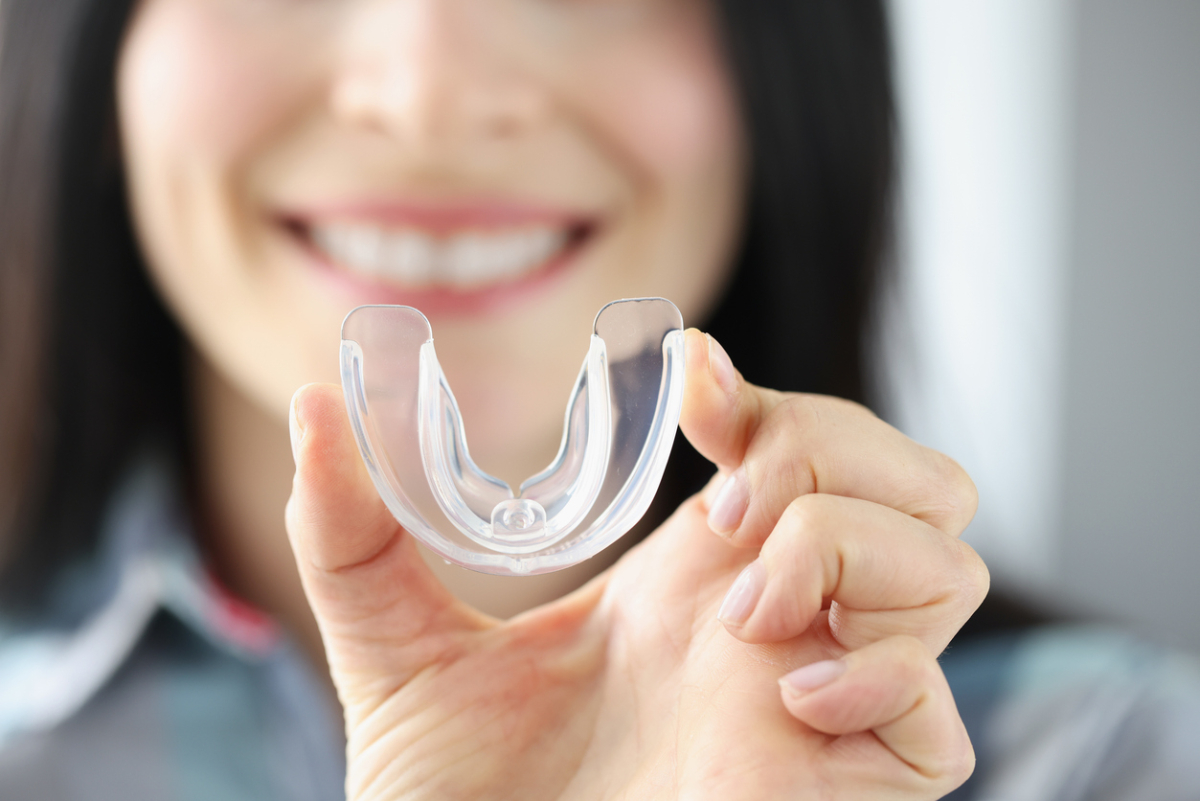A night guard is a dental appliance typically made of acrylic or plastic that creates a barrier between the upper and lower teeth. It is used to prevent tooth grinding in people with bruxism. In this article, we discuss signs you should start using night guards.
11 Signs You Should Start Using Night Guards
A night guard is often recommended to people with bruxism—involuntary teeth grinding and jaw clenching. The force of a human bite is powerful, so bruxism causes excessive strain to the muscles in your jaw and neck, as well as excessive friction to your teeth. It can lead to several negative oral and general health consequences, such as:
- Dental health issues
- Headaches and muscle pain
- TMJ disorder
Let us look at the signs you might have bruxism and need to wear a mouth guard at night:
- Frequent jaw tension, soreness, or pain
- Morning headaches, especially around the temples or forehead
- Tension or soreness in the neck or shoulders
- Tense or tired facial muscles, especially near the jaw or cheeks, or pain in the facial muscles when chewing food or opening your mouth
- Disturbed sleep because teeth grinding causes micro-awakenings throughout the night
- Audible teeth grinding, typically reported by a partner or a person who sleeps with you in the same room
- Worn, flattened, or chipped teeth
- Tooth enamel damage and increased tooth sensitivity to changes in temperature or pressure
- Temporomandibular Joint (TMJ) Issues, such as clicking, popping, or locking of the jaw when you open or close your mouth, or limited joint movement
- Earaches when no infection is present
- Damaged dental work, such as worn-out, cracked, or chipped dental fillings, veneers, or crowns
The symptoms of bruxism we listed above can coincide with increased stress or anxiety, as bruxism is often caused by these conditions. Regardless of the cause, bruxism requires professional medical attention to prevent further damage to the teeth. Additionally, since it disrupts your sleep and causes muscle tension, it also affects your general health and quality of life.
Several methods can be used to treat bruxism. Typically, several of these methods can be used together:
- Counseling and therapy to reduce anxiety and stress
- Anxiety or depression medications
- Physical therapy and massages
- Meditation, stretching, and yoga
- Wearing a nightguard
How a Night Guard Can Help
A custom-made night guard can be effective in several ways:
- It protects your teeth from further wear, enamel erosion, and fractures by creating a barrier between your lower and upper teeth.
- It helps align your jaw in a natural and more relaxed position during rest, thereby minimizing TMJ strain and reducing jaw soreness and tension, which also alleviates symptoms such as neck pain and headaches.
- It reduces facial muscle tension and soreness caused by bruxism.
- It can improve sleep quality by reducing the sound of teeth grinding and jaw movement, which can disrupt sleep at night.
- It can help prevent more serious dental complications, such as tooth shifting, gum recession, or cracked dental restorations.
There are two types of night guards: over-the-counter and custom-made. We recommend opting for a custom-made solution because, being tailored to your specific needs and anatomy, it offers a superior fit and comfort compared to over-the-counter options and thus provides more effective protection.
Get a Custom-Made Night Guard at Glendora Family Dentistry
If you notice any signs of bruxism we talk about in this article, do not hesitate to schedule a consultation with an experienced dentist. We will carefully examine your case to create a comprehensive treatment plan, including a comfortable and high-quality custom-made night guard to relieve the symptoms of bruxism and prevent further damage.




